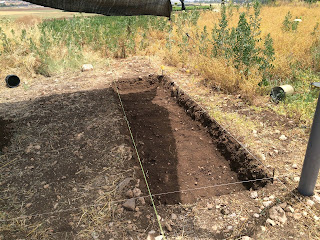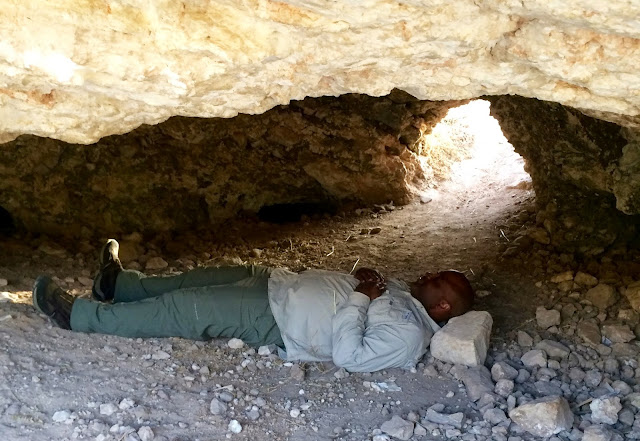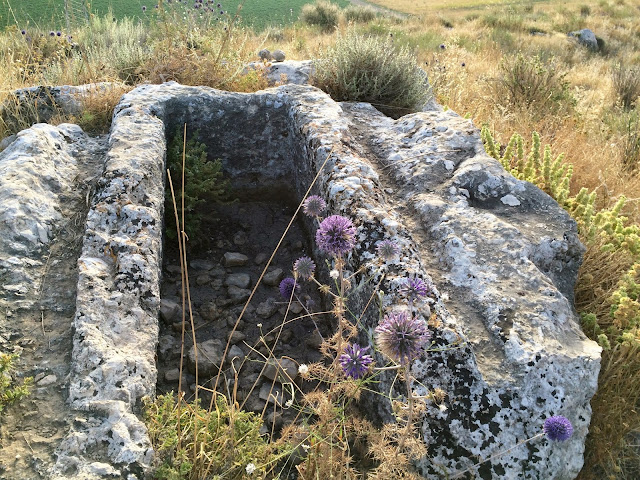 |
| 30 centimeter deep trench from first day of digging. |
Our day started at about 5:00 am this morning with a two-hour walking
tour of the surrounding area, where we explored tombs from the Mid-Bronze Age (Abraham’s
time) to present day. One of the most fascinating was a tomb, from
the time of Jesus. Modern workers dynamited the rear of tomb to create more
agricultural space. This allowed us excellent access to the tomb
without having to crawl through the tiny opening at the mouth of the cave.
After the tour, we rested in a cool oasis at the bottom of a valley and had
breakfast. Afterwards, we hiked to the dig site and broke ground on
this year’s dig. My sub-site uncovered a few flint tools, pieces of
mosaic material, and a small Arabic coin. As the temperature
approached 100 degrees, we packed our gear and headed back to the Kibbutz, ate lunch, and later helped catalogue the artifacts discovered earlier in the day.
We finished the evening with a lecture about the history of the Jezreel Valley
and surrounding areas.
 |
| Inside of Jesus era tomb. If the rear was intact, the only entrance would be the small opening a the mouth of the cave. |
 |
| Rear of Jesus era tomb. Tomb was damaged during an agricultural clearing project. |
 |
| Roman era tomb. Grooves around opening kept rain water and debris out. |







